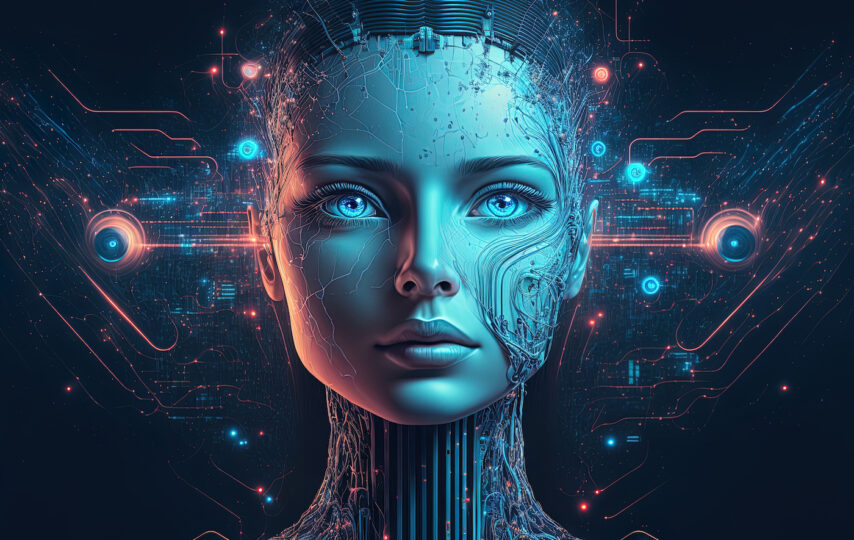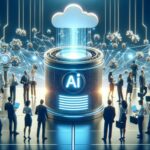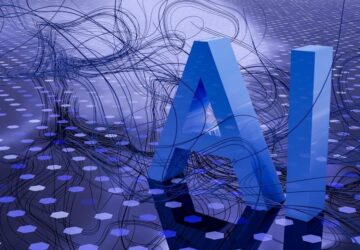In recent years, the integration of Artificial Intelligence (AI) into our daily lives has become increasingly prevalent, reshaping the way we live, work, and interact with technology. This transformative shift is not just a fleeting trend but a fundamental change that is here to stay. In this exploration, we delve into the significant impact of AI on various aspects of our lives, uncovering the reasons behind its widespread adoption and the implications it holds for the future.
Unveiling the Allure of AI
AI’s assimilation into our daily routines is fueled by its ability to analyze vast datasets, draw insights, and execute tasks with unparalleled precision. The allure lies in its capacity to automate processes, saving time and enhancing efficiency across diverse industries. From predictive algorithms in healthcare to personalized recommendations in entertainment, AI is becoming the cornerstone of innovation, promising a future where technology seamlessly augments our capabilities.
The Rise of AI in Everyday Applications
AI is no longer confined to research labs or specialized industries; it has infiltrated our daily lives in ways we may not even realize. From voice-activated virtual assistants and predictive text suggestions to image recognition in social media, AI has become a silent yet omnipresent force, streamlining tasks and providing tailored experiences. This widespread integration showcases the adaptability and versatility of AI technologies.
The Impact on Healthcare and Well-being
In the realm of healthcare, AI is revolutionizing diagnostics, treatment plans, and patient care. Advanced algorithms can analyze medical records, identify patterns, and provide insights that aid healthcare professionals in making informed decisions. The result is more accurate diagnoses, personalized treatment strategies, and ultimately, improved patient outcomes. The integration of AI in healthcare is not just a technological advancement; it’s a lifeline for better, more accessible healthcare services.
AI in Education: Personalized Learning Experiences
The education sector is experiencing a paradigm shift with the integration of AI. Intelligent tutoring systems, adaptive learning platforms, and automated grading systems are enhancing the educational experience for students and educators alike. AI’s ability to tailor learning paths based on individual strengths and weaknesses ensures a more personalized and effective learning journey, paving the way for a future where education is not one-size-fits-all but tailored to each student’s unique needs.
Navigating Ethical Considerations
As AI becomes deeply embedded in our lives, ethical considerations come to the forefront. The responsible development and deployment of AI technologies require careful consideration of issues such as bias in algorithms, data privacy, and the potential societal impacts of automation. Striking a balance between innovation and ethical standards is crucial to ensuring that AI contributes positively to our lives without compromising fundamental values.
The Future Landscape: AI and Job Evolution
Contrary to fears of job displacement, AI is poised to reshape the employment landscape rather than replace it. The integration of AI in various industries is creating new opportunities and roles, emphasizing the need for upskilling and adaptability. As routine tasks become automated, the workforce can focus on more complex, creative, and value-added responsibilities. Embracing AI is not about job loss but about the evolution of roles in tandem with technological advancements.
AI and Connectivity: Shaping Smart Cities
The concept of smart cities is gaining momentum, driven by AI-powered technologies. From traffic management and energy optimization to waste management and public safety, AI is fostering connectivity and efficiency in urban environments. The result is a more sustainable, resource-efficient, and interconnected urban landscape that addresses the evolving needs of a growing population.
The Crucial Role of AI in Environmental Sustainability
Beyond its impact on daily activities, AI is emerging as a key player in addressing global challenges, particularly in the realm of environmental sustainability. AI applications, such as predictive analytics for climate modeling and optimizing resource consumption, contribute to more effective environmental management. The ability of AI to process vast amounts of data aids in identifying patterns and trends that can inform sustainable practices, ensuring a harmonious coexistence between technology and the environment.
Enhanced Security Measures with AI
As the digital landscape expands, so do security concerns. AI is proving to be a formidable ally in the fight against cyber threats. Machine learning algorithms can analyze vast datasets to detect and respond to potential security breaches in real-time. The proactive nature of AI-driven security measures is crucial in safeguarding sensitive information and maintaining the integrity of digital ecosystems. In an era of increasing cyber threats, AI becomes an indispensable tool for fortifying our digital defenses.
AI’s Contribution to Scientific Discovery
Scientific research and discovery are benefiting immensely from the integration of AI. Whether it’s analyzing genomic data for medical breakthroughs, simulating complex scenarios in physics, or identifying patterns in astronomical observations, AI accelerates the pace of scientific advancements. The ability to process data at an unprecedented scale allows researchers to explore new frontiers and gain insights that were once inconceivable, opening doors to innovation and understanding.
Overcoming Limitations: Addressing Bias and Explainability
While AI presents boundless opportunities, it also grapples with challenges, most notably bias in algorithms and the lack of transparency in decision-making processes. The future of AI involves concerted efforts to address these limitations. Striving for fairness and transparency in AI systems ensures that the benefits of AI are accessible to all, without perpetuating societal biases. Additionally, enhancing the explainability of AI decisions fosters trust and comprehension, crucial for widespread acceptance.
Collaboration and Global Impact
The evolution of AI transcends individual applications; it’s a collaborative endeavor with a global impact. The sharing of knowledge, best practices, and open-source frameworks is driving a collective push towards responsible AI development. Initiatives that promote collaboration between academia, industry, and policymakers are essential for establishing ethical guidelines and standards that guide the responsible deployment of AI on a global scale.
The Continuous Learning Curve: AI and Human Collaboration
As AI advances, it’s essential to recognize the symbiotic relationship between AI and human intelligence. Rather than a replacement, AI serves as a complement to human abilities, amplifying our capacity for innovation and problem-solving. Continuous learning becomes the cornerstone of this collaboration, as individuals adapt to the evolving technological landscape, acquiring skills that align with the capabilities of AI. The future envisions a workforce that seamlessly integrates AI technologies, fostering a synergy that maximizes productivity and creativity.
Shaping a Harmonious Future
The integration of AI into our lives goes beyond convenience; it shapes the very fabric of our future. From environmental sustainability and enhanced security to scientific discovery and global collaboration, the impact of AI is multifaceted and profound. As we navigate the uncharted territories of AI, the key lies in responsible development, ethical considerations, and a collaborative approach to ensure that AI becomes a force for positive change. Embracing the potential of AI involves not just understanding its capabilities but actively participating in shaping a future where technology enhances the human experience and contributes to a more harmonious and interconnected world.
Conclusion: Embracing the AI Revolution
In conclusion, the integration of AI into our daily lives is a transformative journey with far-reaching implications. As AI continues to evolve, it’s imperative to understand its potential and challenges. The ethical considerations surrounding AI, coupled with its impact on healthcare, education, employment, and urban development, underscore the need for responsible and thoughtful integration. Embracing the AI revolution means not just adapting to change but actively shaping a future where technology serves as a catalyst for positive progress. As AI becomes an integral part of our lives, the key lies in harnessing its power to enhance, rather than replace, the human experience.







